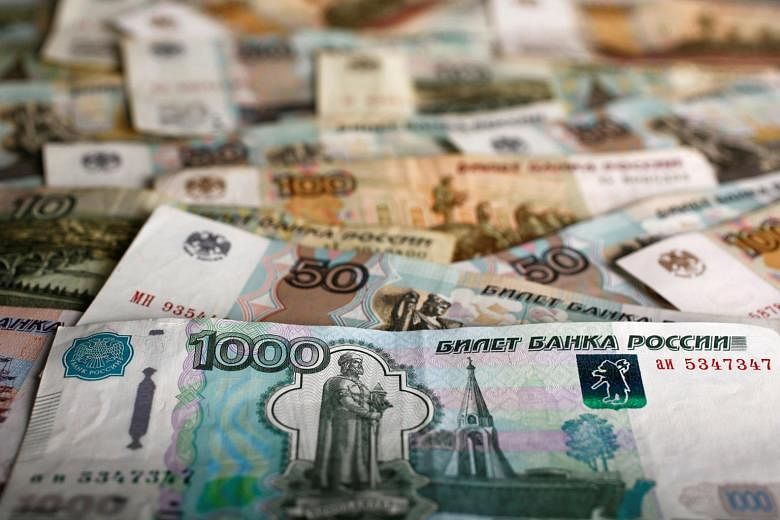TOKYO (REUTERS) - Asian importers of Russian gas were scrambling on Thursday (March 24) after Russian President Vladimir Putin said "unfriendly" countries must pay for Russian gas in roubles, in the latest jolt to global energy markets after Moscow's invasion of Ukraine.
Japan, South Korea and Taiwan were on the list of countries deemed unfriendly. They all import liquefied natural gas (LNG) from the Sakhalin-2 and Yamal LNG projects in eastern Russia.
Mr Putin said on Wednesday that Russia, which calls its actions in Ukraine a "special military operation", would continue to supply gas in volumes and prices fixed in contracts but would require payment in Russian roubles.
Japan, the biggest importer of Russian LNG in Asia, had no idea how Russia would enforce that requirement.
Finance Minister Shunichi Suzuki said in Parliament: "Currently, we're looking into the situation with relevant ministries as we don't quite understand what (Russia's) intention is and how they would do this."
Japan imported 6.84 million tonnes of LNG from Russia in 2021, according to Refinitiv trade flow data, making up nearly 9 per cent of its LNG imports.
Jera - Japan's biggest LNG buyer - has not received any notification from Sakhalin Energy, the joint venture that operates Sakhalin-2, to change the currency of payment from the US dollar, a company spokesman said. The spokesman added that the country's biggest power generator will keep gathering information.
A thermal power and fuel joint venture between Tokyo Electric Power Company Holdings and Chubu Electric Power, Jera buys about two million tonnes a year (tpy) of LNG from the Sakhalin-2 project under long-term contracts, according to Japan Oil, Gas and Metals National Corporation's (Jogmec) data.
Tokyo Gas and Osaka Gas, the country's two biggest local gas suppliers, were also checking details on the rouble requirement, company spokesmen said on Thursday.
Sakhalin Energy is 50 per cent owned by Russia's Gazprom, with Shell holding a 27.5 per cent stake, while the rest is held by Japan's trading companies Mitsui & Co and Mitsubishi Corp. Shell said on Feb 28 that it would quit the project and the Japanese government has said Shell's exit did not impact Japan's energy imports.
Mitsui and Mitsubishi are checking details of Russia's announcement, their spokesmen said.
Other buyers
South Korea, Asia's third-largest importer of Russian LNG, expected to be able to continue imports, with the country's Financial Services Commission saying it would do whatever was necessary to facilitate trade.
Korea Gas Corp (Kogas) said it imports about two million tpy of Russian LNG, making up about 6 per cent of the company's imports. However, Kogas does not transact directly with Russia as its purchase contract is with Sakhalin Energy and payments for the gas go into a Japanese bank in Singapore, it added.
"Since we are making payments to that Japanese bank, we are not currently seeing issues now, but we are closely monitoring the development," a Kogas official said.
Taiwan's economy ministry said state-owned CPC Corp has one gas shipment arriving from Russia at the end of this month.
It said they had received "no news that the payment system will be adjusted".
The call for payments in roubles was seen as Mr Putin's way of trying to shore up the rouble, which has collapsed after the imposition of sanctions on Russia.
He said the government and central bank had one week to come up with a solution on moving operations into the Russian currency and that Gazprom would be ordered to make the corresponding changes to contracts.
However, the move is unlikely to work for Moscow, said Dr Eswar Prasad, a trade policy professor at Cornell University.
"Foreign importers would no doubt be happy to pay for their purchases of Russia's exports in a currency that is collapsing in value, although getting access to roubles in a manner that does not fall afoul of sanctions could be tricky," Dr Prasad said.
Getting paid in roubles would do little to secure the hard currencies Russia needs to prop up its currency's value in global markets or pay for imports from other countries, he added.

